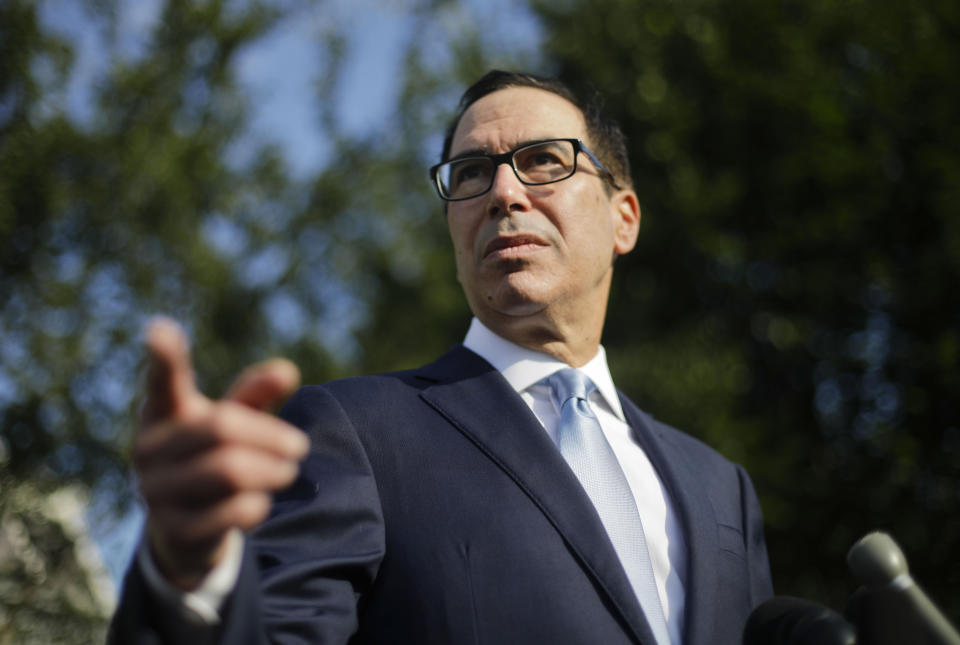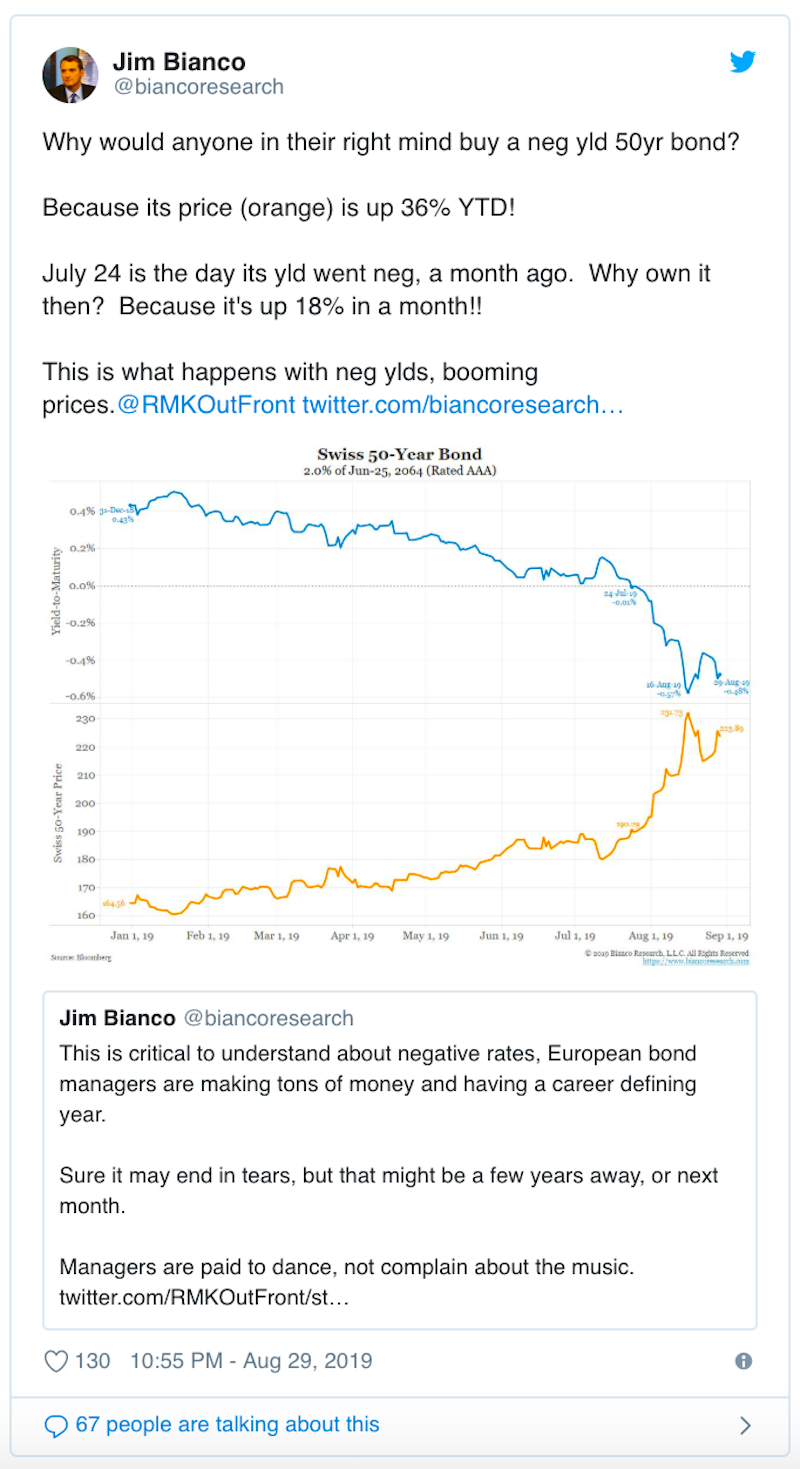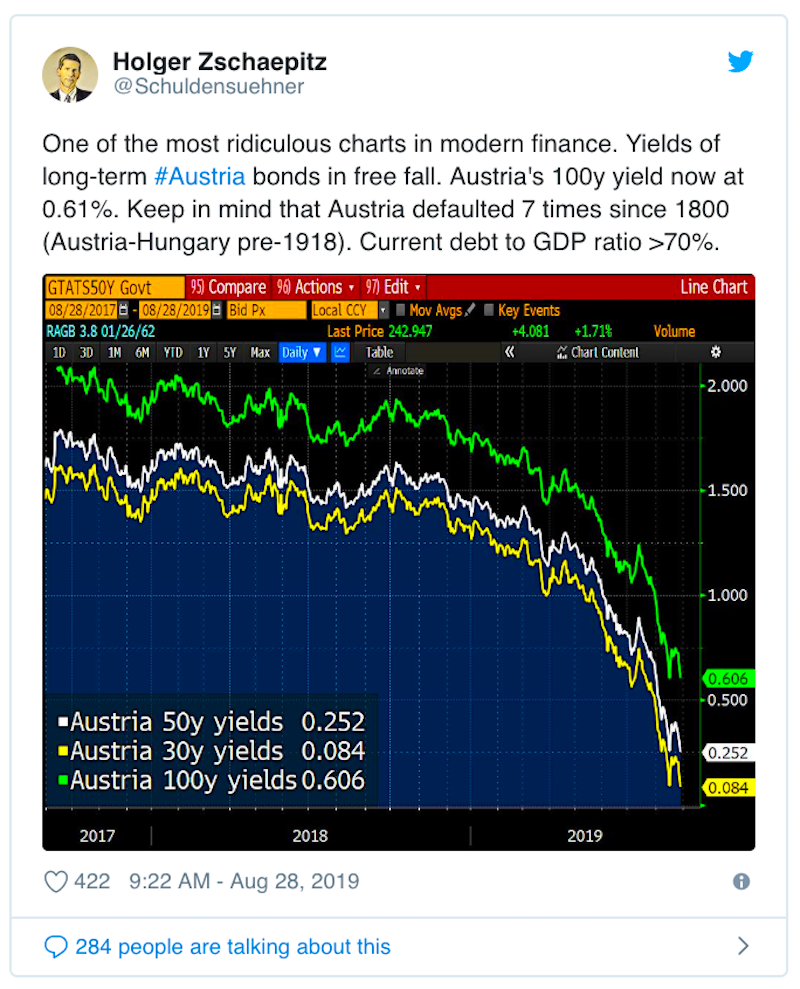Would you buy a 100-year bond from this man?
Would you buy a 100-year bond from Treasury Secretary Steven Mnuchin? For the next 10 decades, you — or should I say your heirs — would get to reap a 2% coupon.
Whoopee!
What could possibly go wrong?
This is not idle or far-fetched speculation. The Treasury Secretary has in fact proposed floating a 100-year bond, called a century bond. He suggested it two years ago as well, so too did officials in the Obama administration before him, but in both cases the risks (weakening the demand for 30-year Treasuries, for instance), were seen as outweighing the upside of borrowing oodles of super cheap money.
Mnuchin, as the seller, isn’t wrong to want to do this. Though it’s hard to imagine what life will be like in the 22nd century, why shouldn’t the Treasury lock into historically low rates and back up the truck? But from the buyer’s side, i.e., institutions like pension funds, banks and insurance companies, (which are often ultimately investing for retail investors), century bonds may be less appealing.
‘Would you buy a 100-year bond from Johnson and Johnson?’
Who in their right mind would commit to a coupon so low, and with a term so long that only a tiny proportion of young children alive today will live to see it? When rates go up — which of course they will, and at some point, significantly — your principal will be toast. And for sure, someone, the human (or robot), running the trust department at the Waxahachie Savings and Loan, might want to sell these bonds in 2093.
Let’s not forget that in 1981, the 30-year yield briefly rose above 15%, and get this, according to The New York Times, buyers turned their noses up at it! If investors had bought then, they would have not only locked into that ridiculously high yield, they would have luxuriated with capital gains for decades. Today we have the opposite. Investors are tripping over themselves to lock into even longer term bonds yielding less than 2%.
As Scooby Doo would say, “Rut-roh.”

And yet demand for ultra-long bonds is brisk.
Austria had so much success raising €3.5 billion ($3.8 billion) in a 100-year bond two years ago at 2.1%, that it just sold another 100-year issue for €1.25 billion ($1.3 billion) at 1.17%. JPMorgan (JPM), which has helped manage various 100-year offerings including the most recent Austrian deal, reports that Argentina (where yet again the economic situation has turned dire), Mexico and companies such as Walt Disney (DIS) and Coca-Cola (KO) have issued 100-year notes in the past. JPMorgan even helped Oxford University sell a £750 million ($915 million) 100-year bond in 2017 with a coupon of 2.5%. At least this is an institution that knows about longevity. The University is some 800 years old.
In fact, colleges and universities might make for ideal issuers. The University of Pennsylvania, founded in 1740 with an endowment of over $13 billion, just sold a $350 million century bond yielding 3.61%, “the lowest interest rate ever achieved on a domestic century bond by either a corporate or nonprofit issuer,” according to Penn Today. Says the treasurer of a college that has sold a century bond, “These schools with their long histories and stability could be more attractive than a corporate issuer. Look what happens. Would you buy a 100-year bond from Johnson and Johnson?”
Ioannis Rallis, head of the European Supranational, Sovereign and Agency DCM team at JPMorgan, says strong demand is in part a reflection of a lack of alternatives for investors.
Rallis writes: “A lot of investors are frustrated with the investment landscape and don’t have many alternatives in the current environment. No one in the real-money community likes to invest money at 1% for 100 years. But if you’re a government bond investor and 30-year German Bunds yield 0.25% then it becomes an interesting proposition.”
Another point to be made is that bond investors are making a killing right now on the frenzied rush into sovereign debt. A Swiss 50-year bond price is up 36% year to date, even as its yield turns negative!
And those Austrian 100-year bonds? They now yield .61%. (Even as one European bond market observer noted that Austria has defaulted seven times since 1800.)
For now, sophisticated buyers and traders of these ultra-long bonds are having a field day, and sellers are happy to oblige them by providing more supply.
But sure as Argentina will face another financial crisis, this short-term flurry will end badly for some.
-
Andy Serwer is editor-in-chief of Yahoo Finance. Follow him on Twitter: @serwer.
Read more:
Negative interest rates are coming and they are downright terrifying
Jamie Dimon: Donald Trump deserves ‘some’ credit for the strong economy
Read the latest financial and business news from Yahoo Finance
Follow Yahoo Finance on Twitter, Facebook, Instagram, Flipboard, SmartNews, LinkedIn, YouTube, and reddit.




